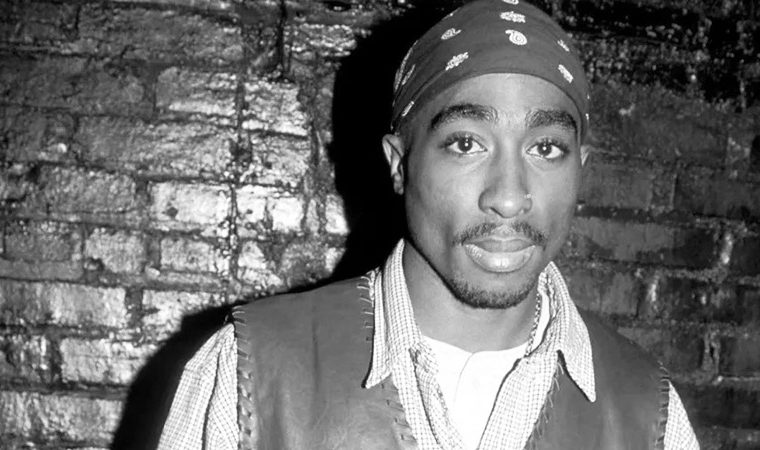
N.Y. Judge Reverses Quintuple Life Sentence – Frees Alleged Tupac Robber & Shooter From Quad studio in 1994.
In 1997, Walter Johnson stood before Judge Frederic Block in a Brooklyn federal courtroom after being convicted of robbery, cocaine possession and witness tampering, just the latest in a troubling series of crimes that involved guns, drugs and violence.
Judge Block called Mr. Johnson, a street legend known as King Tut, “a classic example of a person who has to be incapacitated so society is protected against you.” Then he hit Mr. Johnson with five life sentences.
On Thursday, Judge Block called the punishment he imposed 27 years ago too harsh, the product of ill-considered laws and his own inexperience. He freed Mr. Johnson, who hours later walked out of prison and back into society.
“Judges gain insights that with the passage of time only can come with experience on the bench and their judicial maturation,” Judge Block wrote in his decision granting Mr. Johnson’s petition for release. He added: “Just like prisoners who have evolved into better human beings during their lengthy periods of incarceration, judges also evolve with the passage of years on the bench.”
At 90, Judge Block is a senior jurist on the same federal bench in the Eastern District of New York from which he sentenced Mr. Johnson as a second-year judge. He has seen shifts in sentencing standards and wrestled with the issue enough to prompt him to publish a book last month that presents some of his past cases in making the argument for revisiting overly punitive sentences.
And on Thursday, he put that philosophy into action with a remarkable filing, correcting a sentence that, while lawful, he now regarded as “excessively harsh.”
That morning, Mr. Johnson, mellowed at age 61 and plagued with a litany of health problems, was called to the phone at the Federal Correctional Institution in Otisville in upstate New York, where he had spent the past 16 years. He was told he would be released within hours.
“Judge Block gave me a gift I never thought was coming,” Mr. Johnson said by phone just after his release.
In a phone interview, Judge Block called his decision “the mother of all compassionate release decisions so far” and one that reflected a changing outlook on prisoners enduring their punishments long into old age.
Mr. Johnson’s story began decades earlier in the Cypress Hills public housing apartment in Brooklyn where, as a teenager, he began running with robbery crews that targeted drug dealers.
Their misdeeds included sticking up entire subway cars on the F line. In 1982, Mr. Johnson was convicted of robbing 300 Jehovah’s Witnesses at his own mother’s church. And in 1983, he was convicted of holding up the passengers on a city bus.
Through the mid-1990s, he amassed more than a dozen arrests and served numerous sentences in state prison and on Rikers Island.
Mr. Johnson was acquitted in a 1993 nonfatal shooting of two off-duty New York City police officers during the robbery of a Brooklyn barbershop that had led to a shootout.
Perhaps most prominently, he was questioned in connection with the shooting of the rapper Tupac Shakur outside a Manhattan recording studio in 1994. Mr. Shakur in his 1996 song “Against All Odds” warned: “Here we come, gunshots to Tut.” Mr. Johnson denied being at the shooting.
Mr. Johnson said that while he deserved to be punished, the sentence initially stunned him.
“I knew I was a troublesome individual and made some mistakes, but I said to myself, ‘I can’t be this guy who deserves five life sentences,’” said Mr. Johnson, who spent his first day of freedom with his wife, Natoka Johnson.
In prison, Mr. Johnson’s disciplinary record was stellar, said Judge Block and Mia Eisner-Grynberg, Mr. Johnson’s lawyer and a federal public defender in Brooklyn.
Mr. Johnson immersed himself in prison programs and helping other inmates, motivated by the attitude that, “Even if I got to die in jail, let me be the guy who tries to make a change,” he said.
“The judge doesn’t realize what he did was actually one of the best lessons that’s ever been taught to me — he actually saved my life, because when I was in society I didn’t think much of myself,” Mr. Johnson said.
After his first arrest at 14, Mr. Johnson said, he became increasingly caught up with violent gangs that dominated street life in his neighborhood.
“I was taught violence and destructive behaviors,” he wrote in a letter to Judge Block. “I felt like a captive of the pain, confusion, fear and hate that I saw on a daily basis” and believed “that I could only be a thug, pariah, criminal and gangster.”
In the case before Judge Block, prosecutors said that Mr. Johnson had raped a woman, Crystal Winslow, during a drug robbery. Though he was not convicted of that, the judge said in his order that he had nonetheless weighed the accusation in his sentencing.
But Ms. Winslow wrote a letter to Judge Block as Mr. Johnson sought his release, saying that while the episode had a “profound impact on me” she forgave Mr. Johnson, whose “incarceration serves as a constant reminder of a painful past, hindering my ability to fully embrace the present.”
Mr. Johnson has “served a substantial sentence and has had ample time to reflect on his actions,” she wrote.
Not everyone was pulling for Mr. Johnson. Federal prosecutors in Brooklyn opposed his sentence reduction.
“Nothing about the defendant’s current circumstances or time in prison support a sentence reduction given the heinous nature of these crimes,” the prosecutor Amanda Shami wrote in a court filing in opposition to Mr. Johnson’s motion for a sentence reduction.
Patrick Hendry, the president of the New York City Police Benevolent Association, called the decision to release Mr. Johnson “dangerous for both police officers and the communities we serve.”
“The justice system sends a very dangerous message when it gives notorious, violent repeat offenders a free pass,” he said in a statement. “When someone with this kind of horrendous record walks out of prison, criminals take notice.”
Mr. Johnson’s sentencing came when New York and the nation were ravaged by violent crime and the crack epidemic. In response to a public outcry, a federal “three strikes” law was passed in 1994 to mandate life sentences for certain repeat offenders — criminals like Mr. Johnson.
In the years after, critics called the law ineffective and rigid, and said it created lockups filled with aging prisoners who were disproportionately men of color.
In 2018, the federal First Step Act was enacted by enormous bipartisan margins and with President Donald J. Trump’s backing. It overhauled federal sentencing and allowed district court judges to reconsider their sentences and prisoners to seek compassionate release.
Ms. Eisner-Grynberg wrote in a letter to Judge Block in support of Mr. Johnson’s motion that his sentence was “now out of step” with current standards and that he deserved a second chance given “his excessively long, unusual sentence” and “extraordinary rehabilitation and remorse.”
At the same time, Judge Block was rethinking his philosophy and surveying his career.
His book, “A Second Chance: A Federal Judge Decides Who Deserves It,” argues for giving judges wider discretion to revisit sentences that seemed appropriate when imposed but might be eased years later, especially given changes in laws and in attitudes toward rehabilitation.
In his filing this week, Judge Block commended the First Step Act for giving him “a second chance to reconsider the sentences I imposed on Johnson 27 years ago.”
He ordered Mr. Johnson’s sentence reduced to time served, plus three years of supervision.
“I was really against this guy at the time,” the judge said on Thursday. “He was a bad dude, way back when. He was.”
That was one reason for the five lifetime sentences, a punishment the judge said he could not recall any other federal defendants having received. But over time, he realized that “my job as a judge is to care about people.”
“Judges,” he said, “are not the same 27 years later.” S: NY Times



